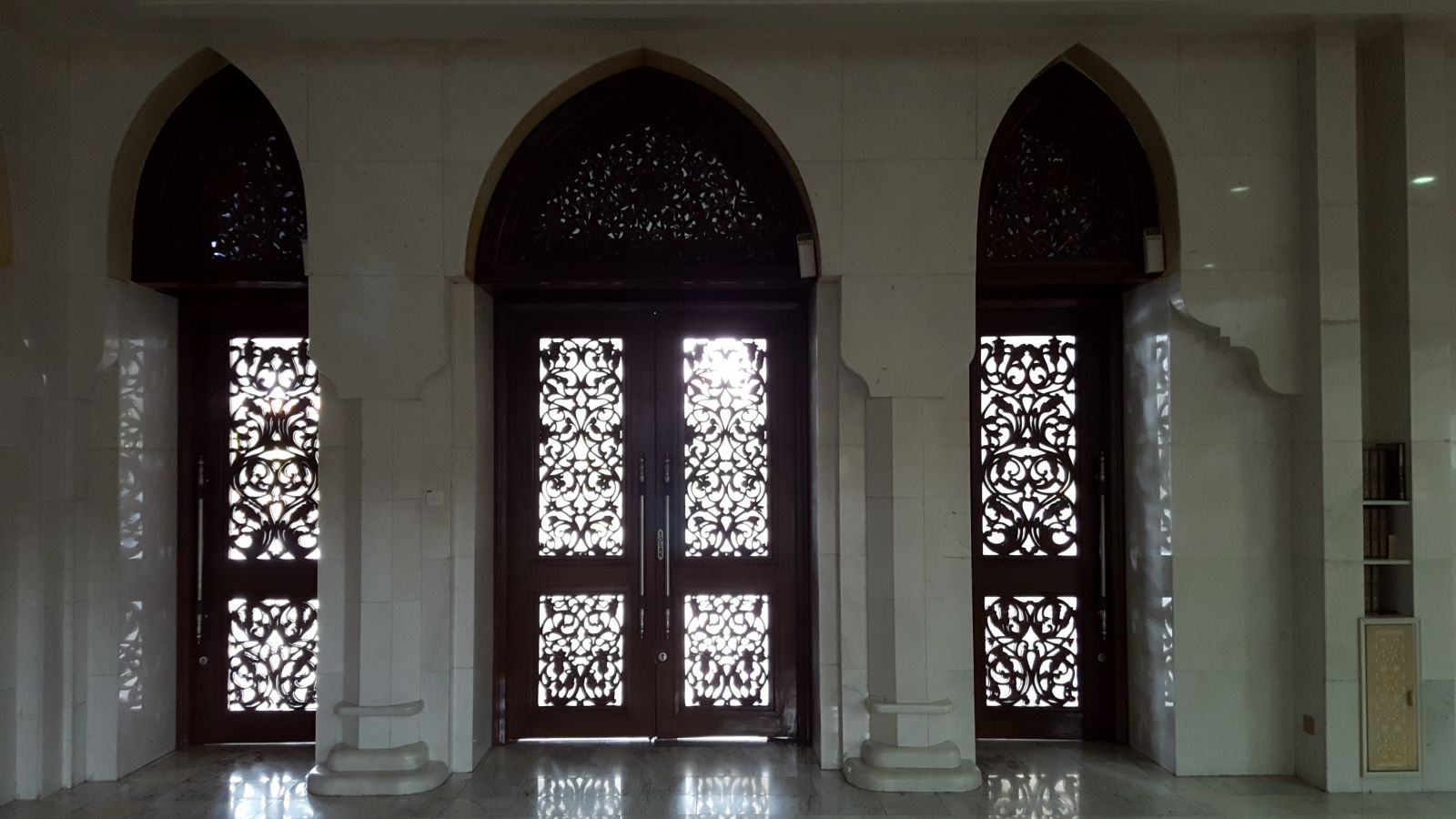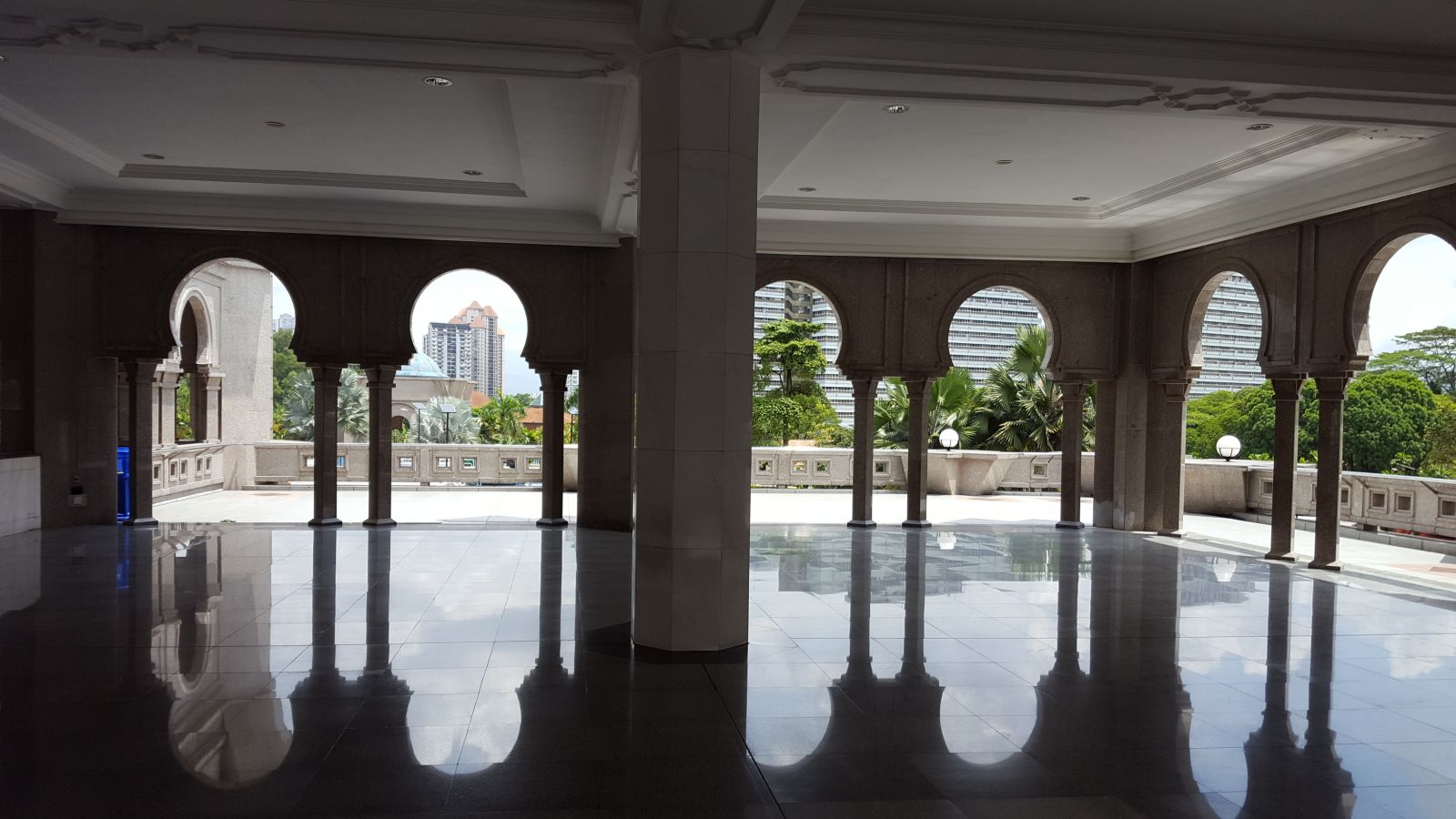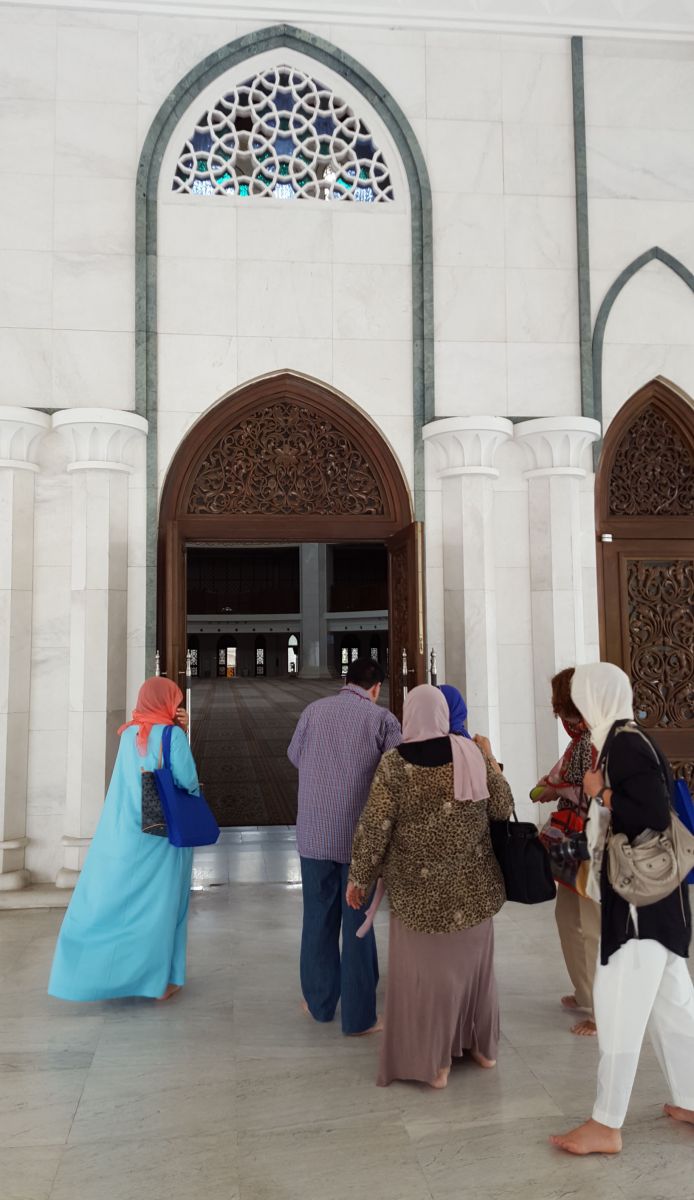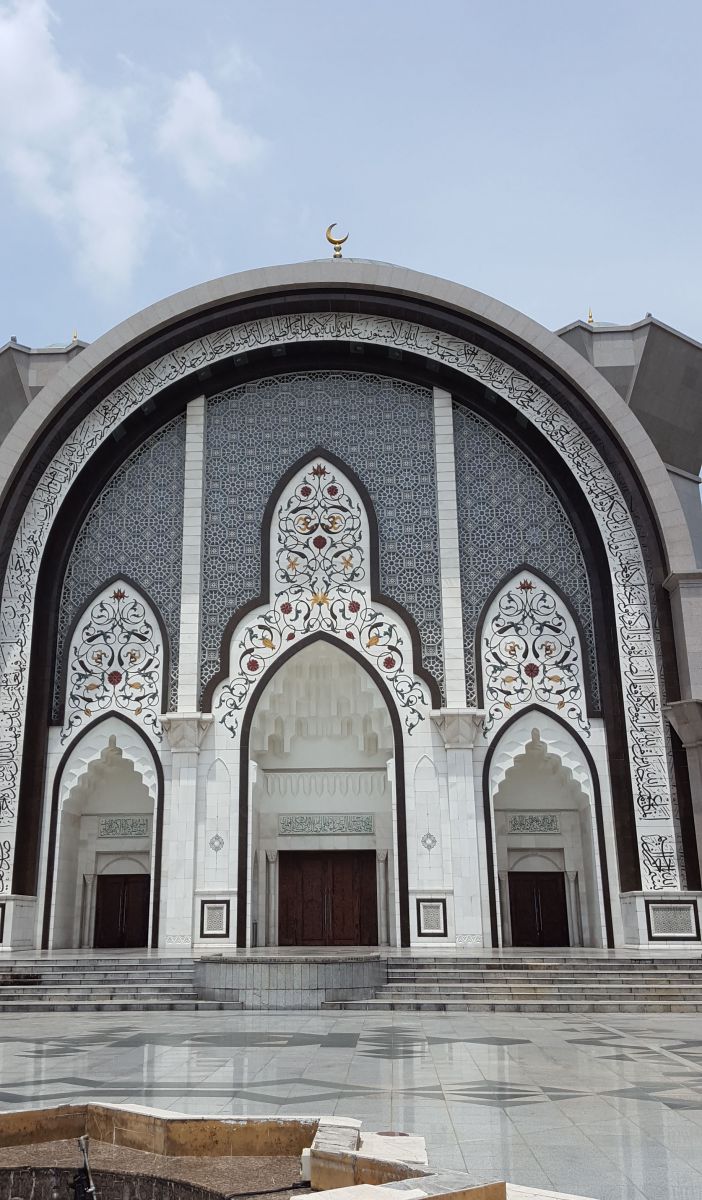|
|
||
.jpg) |
Lecture by Saifudin Mohd Arif (Dewan Muslimat)
Getting an insight into the principles of the religion-based regulations for Muslims was an enriching experience. Most of the Sharia law provides detailed guidance on how to live. The Sharia courts in Malaysia at the moment can impose punishment for domestic issues and small offences: a fine of maximum RM5000 or an imprisonment of maximum three years. Criminal offences are handled by the civil courts both for Muslims and non-Muslims.
The Quran and revelations to the Prophets are the main sources. Interpretations by scholars help to define guidelines applicable to the current time. Understanding the Quran requires a deep understanding of the old Arabic language in which the Quran is written. Translations do not always do justice to the original meaning. Interpretations may differ from country to country or even State to State. |
|
.jpg) |
The pillars of the Sharia law are:
If you follow these guidelines, you will be guaranteed a life in heaven. If you don’t, you will be judged by Allah. |
|
|
|
Punishment is described in Hudud, Ta-azir and Qiyas.
Hudud is about crimes like theft, robbery, adultery, false accusation and drinking. The punishment for theft needs to be proven taken into account aspects like secretly taken from a kept place, value for the owner, request of the owner to get it back, two witnesses or twice a confession.
Ta-azir is about lighter offences like proximity of male and female, eating during Ramadan.
Analogies and comparisons (Qiyas) are used to define what is halal (allowed) or haram (forbidden). Wine and spirits are forbidden according to Sharia law, because it affects your judgement and is not good for your body. As drugs do the same, it also forbidden. Some States have even forbidden smoking for the same reason.
There is also flexibility in applying Sharia law. ‘Necessities make the prohibited permissible’. For example not fasting for a medical reason. Or: a beggar stealing food. |
|
|
There was a lively Q&A session:
Is perfume, which contains alcohol, allowed ? Yes, because it does not affect your judgement.
The punishment in hudud is not prescribed in a fixed way. There is room for interpretation. 100 Lashes to an old guy may be adapted to one lash with 100 twigs.
Polygamy (4 wives) had a purpose at the time of the Prophet: take care of wives and children when many men lost their life in the war. Today it is different and creates a lot of unhappiness for women. The conditions for polygamy are described in the Sharia law: be fair to each wife, give equal material and time. The wives can go to the Sharia court, if the man fails to give justice to each wife and her children. The court can issue an order to pay. But enforcement is not very strong.
Inheritance looks also male-dominated as the female gets half of what a man gets. But the man has the responsibility to maintain the family, the female can keep the money for herself. The position of women has changed, but the rulings cannot be changed.
The punishment in the Sharia Law can be adjusted in Malaysia when two-thirds of the parliament approves the bill. There is a debate planned in October to increase the maximum fine from RM5000 to RM30.000 and to implement hudud more strictly. The scope of the Sharia courts will remain unchanged for now. For example cases related to Islamic finance will continue to be handled by a civil court.
|
||
 |
 |
 |
|
After the lecture friendly guides showed us around. The architecture is an interesting mix of style elements taken from mosques in the Middle East, wood carving from Malaysia and marble carving from India. The mosque is not only a place for worship (17.000 people), but also a community centre and a place to share knowledge. And I learned to enter the ablution block for purification with my left foot and the main hall with my right foot! |
||
 |
 |
 |
|
Text by Alexius Collette. Pictures by Michelle Pease and Vicki Fennessy |
||





.jpg)